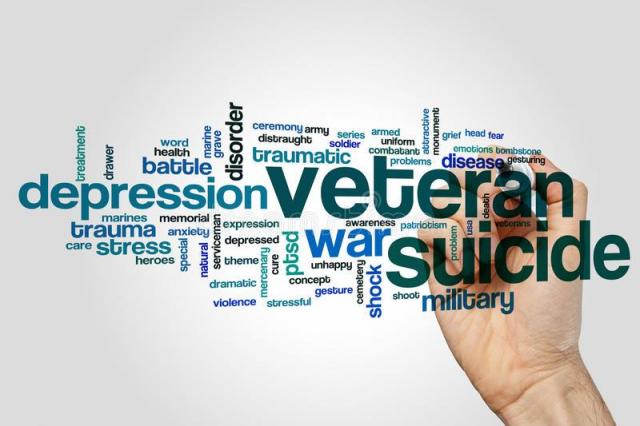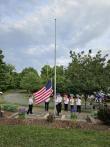What do you do when you are miles away from any VA facility and your community experiences a large number of veterans committing and attempting to commit suicide? You build a community team of veterans and mental health capability, and submit and win one of 69 national SSG Fox veteran suicide prevention grants issued by VA.
After working with Dr. Miller, head of the VA Veteran Suicide national program, for over 9 months to help address the veteran suicides that have occurred in the north Georgia counties of Cherokee and Picken, we were made aware of the Fox grant, noted Jim Lindenmayer, American Legion Post 45 member and member of the Cherokee County Suicide Coalition. We are a rural area of 18,000 veterans with no local VA mental health access and in talking with local veterans who had mental health issues we found out that the VA approach to telehealth is not working.
We had data from what we noted through the Homeless Veterans program and post service officer interactions, and we knew that the civilian mental health program is not set up to handle the issues that combat veterans, MST and PTSD veterans encounter and also those with TBIs. When we heard of the grant, it became clear that we needed a combined clinical and non-clinical approach to the grant.
Working with Melanie Davis and her team at Highland Rivers Health, who manage mental health programs for the State of Georgia, we went toward building a solid team to approach the bid. Knowing that we needed the clinical team, HRH took on the responsibility of being the grant lead and fiduciary as the grant's $750,000 budget would need to be used to hire clinical staff. The 18 local veteran groups that reside in Cherokee and Pickens counties include three American Legion posts: Post 45 in Canton, Post 316 in Woodstock and Post 149 in Jasper.
To build out the team, the VA VETCENTER in Marietta, Kennesaw State University, Humana TriCARE and Kaiser Permanente were recruited to the team to provide additional access and program capability. Part of the program is to have a local site where veterans can come for sessions; the site for this program will be Post 45, which is currently building out the basement to accommodate the program. The program already is experiencing requests from veterans for mental health assistance while we are setting up, noted Mike Satterly, one of the veterans leading the program.





